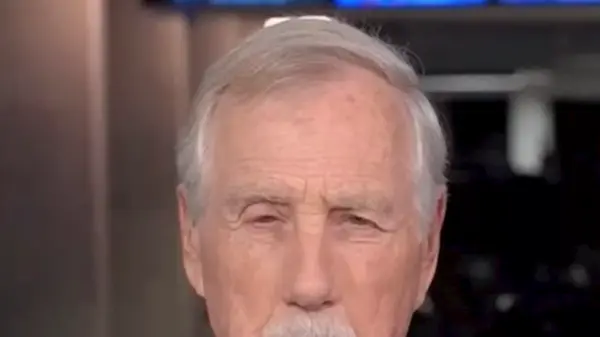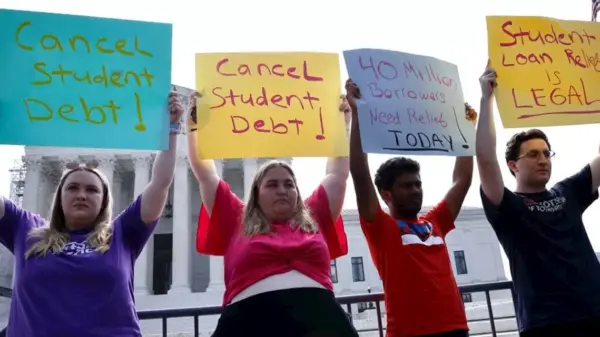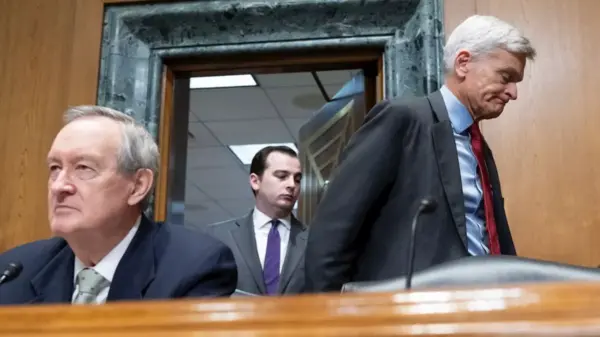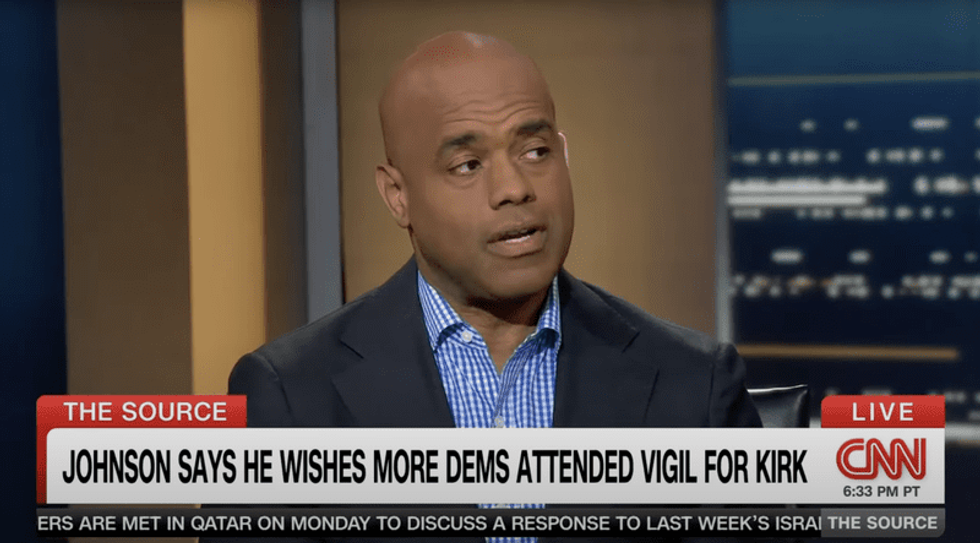New reports confirm a troubling warning from CNN political analyst Jamal Simmons regarding the future of the Democratic Party. During a segment on CNN’s “The Source” with host Kaitlan Collins, Simmons expressed concern that President Donald Trump could take drastic actions to outlaw the party following the recent murder of conservative activist Charlie Kirk.
Simmons highlighted comments made by Stephen Miller, Trump’s Deputy Chief of Staff, who referred to the Democratic Party as an “extremist organization” during a podcast interview earlier this week. This statement aligns with Trump’s recent declarations about his administration’s commitment to eradicating extremism from American politics.
“This is a serious issue,” Simmons stated, emphasizing that the right is attempting to control the narrative surrounding Kirk’s death by drawing false equivalences. He articulated concern over whether the President might mobilize the Justice Department against the Democratic Party, saying, “Is the President of the United States going to unleash the Justice Department on the Democratic Party?”
Collins pressed Simmons for clarity, asking, “Is that your concern?” To which he responded emphatically, “It’s absolutely a concern!”
The alarm raised by Simmons comes amid a politically charged atmosphere following the assassination of Kirk, prompting fears of escalating tensions. The implications of a potential movement to outlaw the Democratic Party raise serious questions about the health of American democracy and political discourse. Simmons cautioned against misinterpreting the public’s response to Kirk’s death, asserting that individuals can grieve while still opposing his political stance.
As this situation develops, observers are urged to remain vigilant regarding Trump’s rhetoric and actions. The political landscape in the United States appears increasingly volatile, with the potential for unprecedented actions against a major political party now looming.
Stay tuned for further updates as this story continues to evolve. The implications of these statements could have significant repercussions for the future of American politics.





































































